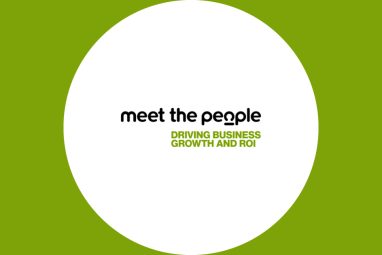Only 27% of companies able to track digital transformation ROI: The Keenfolks
Nearly three-quarters of the world’s companies are struggling to calculate the ROI of their digital transformation spend, according to a survey of over 100 multinational C-suite executives conducted by global digital transformation specialist The Keenfolks. Titled Digital Gap2021, it shows that while majority of companies have accelerated digitally during the pandemic, many still face considerable […]
Topics
What to Read Next

Nearly three-quarters of the world’s companies are struggling to calculate the ROI of their digital transformation spend, according to a survey of over 100 multinational C-suite executives conducted by global digital transformation specialist The Keenfolks.
Titled Digital Gap2021, it shows that while majority of companies have accelerated digitally during the pandemic, many still face considerable challenges. These challenges include data shortages, a lack of investment in marketing technology and the relentless change in consumer habits.
Data challenges
One of the key themes of the study is the use of concrete information, and the challenges many companies face in accessing and analysing it. Then asked whether their company can track and calculate digital ROI effectively, only 27.7 per cent said yes.
Furthermore, 60 per cent of business leaders surveyed believe their company does not generate enough data, and only 32 per cent agreed that they know how to use their data in a meaningful and actionable way.
It appears that the changes catalysed by the pandemic, such as a rise in eCommerce, are making it even harder for brands to read their customer base. In fact, 55 per cent of executives believe it is increasingly difficult for their company to keep up with the evolution of consumer behaviour.
Yet despite all the evidence surrounding the effectiveness of marketing technology, nearly 50 per cent of executives said that their company has yet to establish a strong MarTech stack and strategy, or establish automation processes for marketing activities.
The main barriers to MarTech, automation and data implementation are a lack of competencies, poor awareness of customer data tools and platforms, lack of internal data talent, and inability to manage a consumer database without the aid of a strategic partner.
Also Read: Advertising Vs Organic Interaction: Influencers Must Justify Their Content
Positive signs
Encouragingly, however, it seems most companies have started to move in the right direction.
Seventy-five per cent of firms say their digital acceleration has increased since the start of global lockdown restrictions in March 2020, indicating that many businesses have used the pandemic as a stimulus for positive change.
Furthermore, 70 per cent say that digital customer experience is a priority for their company, and 73 per cent believe that AI will be an important part of their business vision in the short term – indicating an openness to leading-edge innovation.
Miguel Machado, CEO and co-founder of The Keenfolks said, “We are in a rapidly evolving world where trends in consumer digital adoption, expectations, preferences, and buying behaviour have changed at a faster speed than anyone could have predicted. As a result, the digital gap is bigger than it was pre-pandemic. But many executives have realised that successful companies of today and tomorrow will be those that prioritise innovation and really move quickly to accelerate their digital transformation efforts.”
Xavi Cortadellas, chief growth officer and co-founder of The Keenfolks added, “The past 18 months have been difficult for companies all over the globe. Our report findings show that companies are more aware of the challenges they face, but there are still significant barriers that need to be overcome.”









































































































